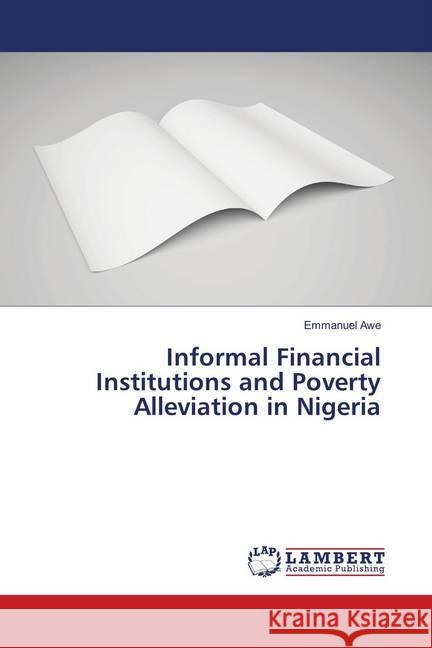Informal Financial Institutions and Poverty Alleviation in Nigeria » książka
Informal Financial Institutions and Poverty Alleviation in Nigeria
ISBN-13: 9786139988822 / Angielski / Miękka / 2019 / 216 str.
Poverty has been receiving global attention and has defied various attempts at curbing it especially in developing countries. The high and unacceptable number of people within its grip around the world gave it pride of place as one of the major goals of Sustainable Development Goals (SDGs). However, a well-functioning and regulated informal economy will be a critical prerequisite to sustainable growth. And also, a widespread informality with regard to investment, employment, enterprise, and productive activities is frequently perceived as a barrier to full participation in the economy and as a hindrance to long-run economic development and poverty alleviation. This is because the link between, informality, poverty alleviation and growth is not fully understood. This study seeks to investigate the link between Informal Financial Institution activities and poverty alleviation in north central-Nigeria. A Linear Probability Model (LPM) and Binomial Logit Regression approach were employed with data from 1970 to 2015 and a cross-sectional data of 700 SMEs in north central-Nigeria (Kogi and Niger states and Abuja FCT).











